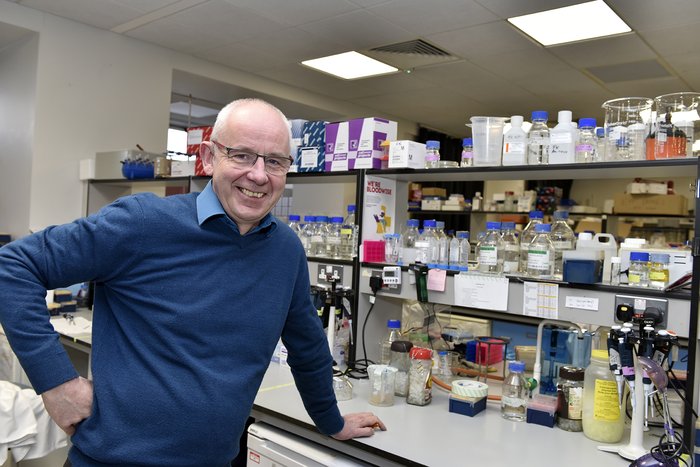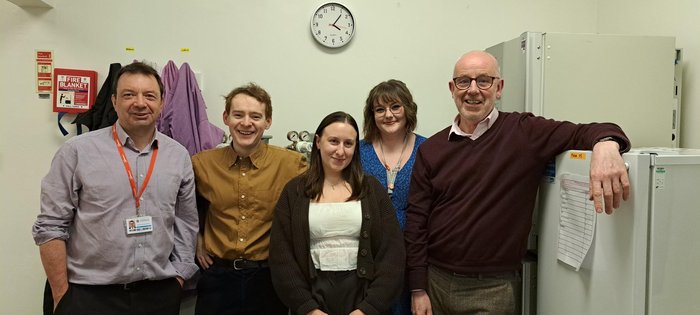Understanding more about the causes of myeloma so new screening tools and drugs can be developed
Myeloma is a type of blood cancer that currently has no cure and is often diagnosed late. Professor Chris Bunce and his team want to understand more about the root causes of myeloma so people at an increased risk of this disease can be screened and monitored, and new drug treatments can be developed.

Professor Chris Bunce
The challenge
Myeloma is a type of blood cancer that affects blood cells called plasma cells. This form of blood cancer currently has no cure, is difficult to treat and often diagnosed late. All patients who go on to develop myeloma have a blood condition called monoclonal gammopathy of undetermined significance (MGUS). However, in most patients MGUS is not detected before myeloma develops. At present, we don’t know enough about which people with MGUS are likely to go on to develop myeloma and there is also a lack of effective drug treatments for those people who do go on to develop this type of blood cancer.
The project
Professor Chris Bunce and his team believe there is a need to focus efforts in understanding more about the causes of MGUS so that people with MGUS who are likely to go on to develop myeloma can be identified and effective drug treatments can be developed. In their previous work they have identified factors that they believe may increase the likelihood of MGUS developing into myeloma. They now wanted to conduct further research to explore this in more detail. This project is being led by PhD student Aidan Haslam.

Professor Chris Bunce and PhD student Aidan Haslam and their research team (from left to right Guy Pratt, Aidan Haslam, Charlotte Speakman, Megan Parish, Chris Bunce).
The future
If their research is successful, they hope to increase understanding of what causes individuals with MGUS to develop myeloma. This increased understanding could allow the development of screening procedures for people with MGUS so that those likely to develop myeloma can monitored. If it looks like the individual is likely to develop myeloma, they can be treated earlier, resulting in a better chance of survival. This research could assist in the development of future drug treatments that can treat MGUS and prevent it from being able to progress into myeloma.
Funding
This Clinical PhD Studentship is funded by the Matthew Wilson Multiple Myeloma Fund at Blood Cancer UK.
Read more about the projects funded by the Matthew Wilson Multiple Myeloma Fund.
